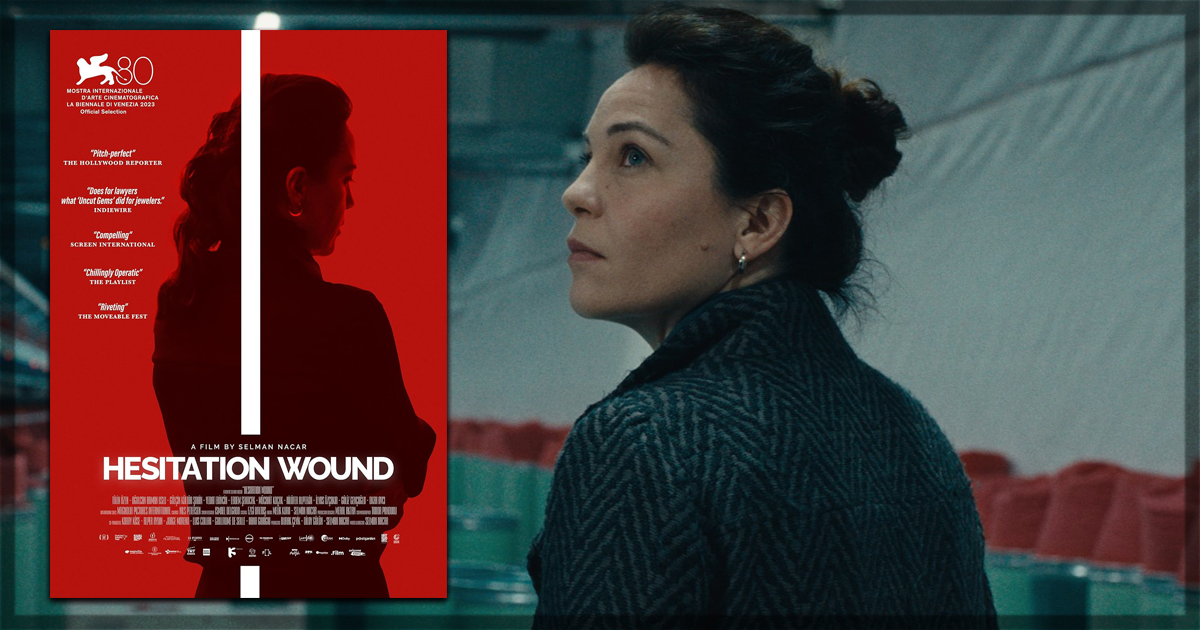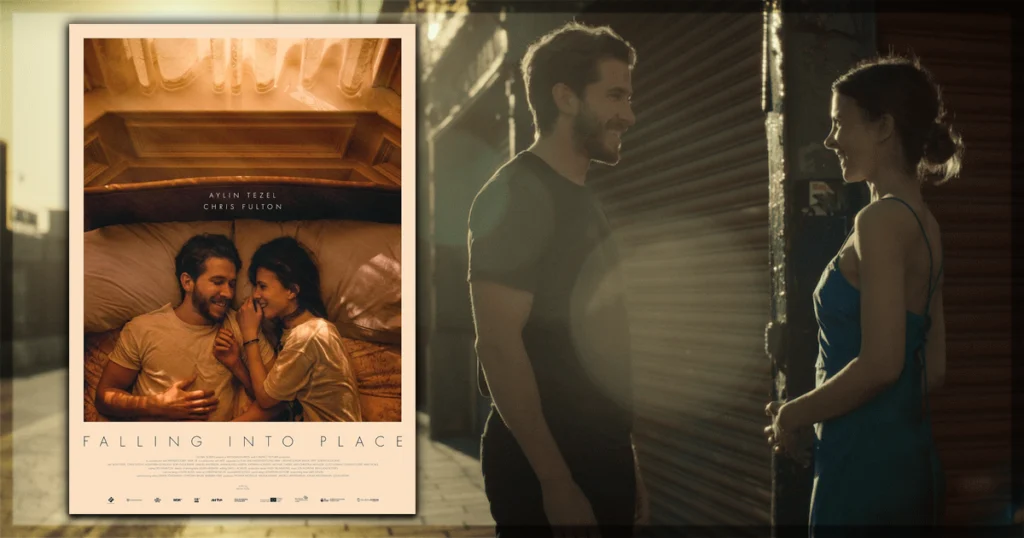Twenty-four hours in one lawyer’s chaotic personal and professional life comes to a head in Selman Nacar’s sophomore feature. Hesitation Wound (Tereddüt Çizgisi) clocks in under 90 minutes, but the fullness of its action and the richness of its moral dilemmas, characterizations, and performances gives it the weight of many longer features.
Canan (Tülin Özen) has a lot on her mind. The young lawyer has recently returned to the port city of Usak, in western Turkey, after working in Istanbul and studying in the UK – both more open-minded places than where her family lives. Her mother has been declared brain dead, and the doctors and her sister Belgin (Gulcin Kultur Sahin) – until recently her mother’s caregiver – are in favor of turning off life support so that her organs can be donated. The sisters’ signatures on the documents for such actions are not required but are preferred by everyone. Despite the facts, however, Canan struggles to believe her mother will not wake up.
Her job is no less intense. She has been tasked with defending a young man, Musa (Ogulcan Arman Uslu), accused of murdering a factory boss and facing the harshest penalties. Musa adamantly proclaims his innocence as Canan seeks any leads or witnesses that might free her client. Her education abroad is used against her by the prosecution’s team and the judge, who works for the area’s corrupt mayor. And here, her two roles collide: the mayor’s son is very sick and may well end up with her mother’s organs. While Canan is not the only person responsible for her mother and Musa, she takes their lives onto her shoulders; the weight is almost too much and has been for some time when Hesitation Wound opens. She has stomach ulcers, and her client has attempted suicide in prison.
Nacar, a former law student himself, is a precise visual storyteller – years of history lead to this one day for Canan, and yet details emerge with crystal clarity and no clunky over-explanation. With each interaction, he explores ideas around justice and its miscarriage, idealism, ethics, and everyday choices to live a good and moral life. No point is belabored; perhaps Canan’s crossroads are more dramatic and have higher stakes than many the ordinary person faces, but they act as a reminder that all decisions have repercussions for one’s life.
Tülin Özen is the perfect actress to convey grand ideals and mundane frustrations in Hesitation Wound
In Özen, Nacar finds the perfect actress to convey these grand ideals and mundane frustrations. She imbues Canan with immense dignity and composure as if knowing that a moment of weakness would doom her career, her client, and her family. It does not endear her to her colleagues and superiors (again, they will not let her forget they believe her haughty for her foreign education, regardless of her true feelings), but the armor’s necessity is made evident. It is a subtle turn that makes clear Canan eschews agonies and triumphs equally, focusing on the goal at all costs – even her own health.
Much of Hesitation Wound unfolds under unnatural, uneven lighting in courtrooms and hospitals – stressful to look at, much less live under. It feels impossible to find peace or closure under such austere conditions. When outside these buildings, the setting and sounds are set to an inescapable, relentless hum. There is no music in the score except when Canan turns on her car radio – always to Vivaldi – and then abruptly turns it off again when she reaches her destination. Instead, uneasy drones combine with diegetic noises, such as beeping hospital machines and stacks of paper being filed and re-filed. The outside world is filled with the bustle of everyday life, much of which does not concern Canan’s aims but illustrates the ecology in which she works.
There is dark, on-the-nose humor throughout Hesitation Wound – for instance when Canan valiantly keeps her poise and professionalism despite being rattled by the tardiness of her client and the boisterous attitudes of the men in the courtroom, only for a portion of the courtroom ceiling to literally collapse from a leak, interrupting her closing argument. Another time, a doctor friend tells Canan just to avoid stress, and her problems will go away.
These sections are not cruel, but the discrepancy between the just, well-made world Canan wants and the mess she must deal with instead laid bare in grim irony. The exact details of the corruption she goes up against in the legal system and local politics are not explored in detail, but from this same ironic sense and her taciturn determination to rise above anything that gets in the way of her two goals, the shape and sense of the cards stacked against her is clear to imagine.
The title Hesitation Wound could refer to Musa’s scars on his arms from half-hearted suicide attempts; they could also refer to Canan’s ulcers, or her mother’s deteriorating physical state kept alive on machines, or even the elusive witnesses’ half-statements. Hesitation Wound is a confident, tightly wound drama that never devolves into either melodrama or thriller, treading its own nuanced path. Nacar has built a strong two-film brand in twenty-four-hour human dramas, and seeing what moral quandaries he tackles next will be highly welcome.
Hesitation Wound is now playing at the Glasgow Film Festival.
What do you think of Selman Nacar’s sophomore film Hesitation Wound? Are you looking forward to the theatrical release? Let us know by connecting with us on X @MoviesWeTexted.
You might also like…
‘Falling Into Place’ Review: Mental Health Aware Romantic Drama
‘About Dry Grasses’ Review: Turkish Character Study Unveiling the Human Soul
‘The Teachers’ Lounge’ Review: Çatak’s Riveting School Drama




